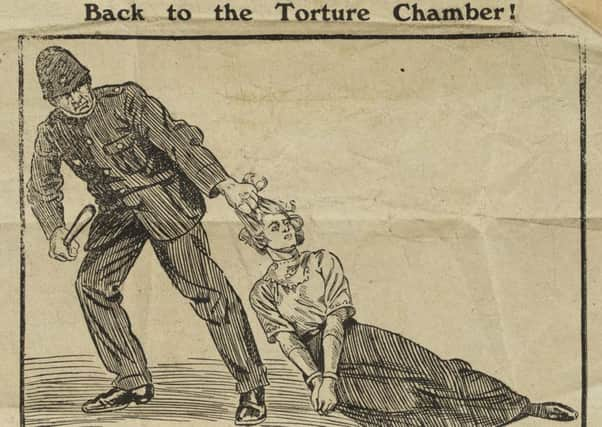Leader comment: Suffragettes were fighters for democracy


Her comment suggests Barbour thought there would be more blood spilt before the right for women to vote was won.
It is sometimes forgotten that the ‘fight’ for universal emancipation involved actual violence and a new exhibition at the National Records of Scotland in Edinburgh is a timely reminder of the problems that can occur when people are denied their democratic rights.
Advertisement
Hide AdAdvertisement
Hide AdSuffragettes, who apparently plotted to blow up Robert Burns’ cottage at Alloway as part of their campaign, were prepared to go to prison for their beliefs and some went on hunger strike during their incarceration. The authorities responded with brutal methods of force-feeding.
Thankfully, as Culture Secretary Fiona Hyslop, noted “we have come a long way since 1918” although she rightly added “much still needs to be done to achieve gender equality and create a fairer country for all”.
